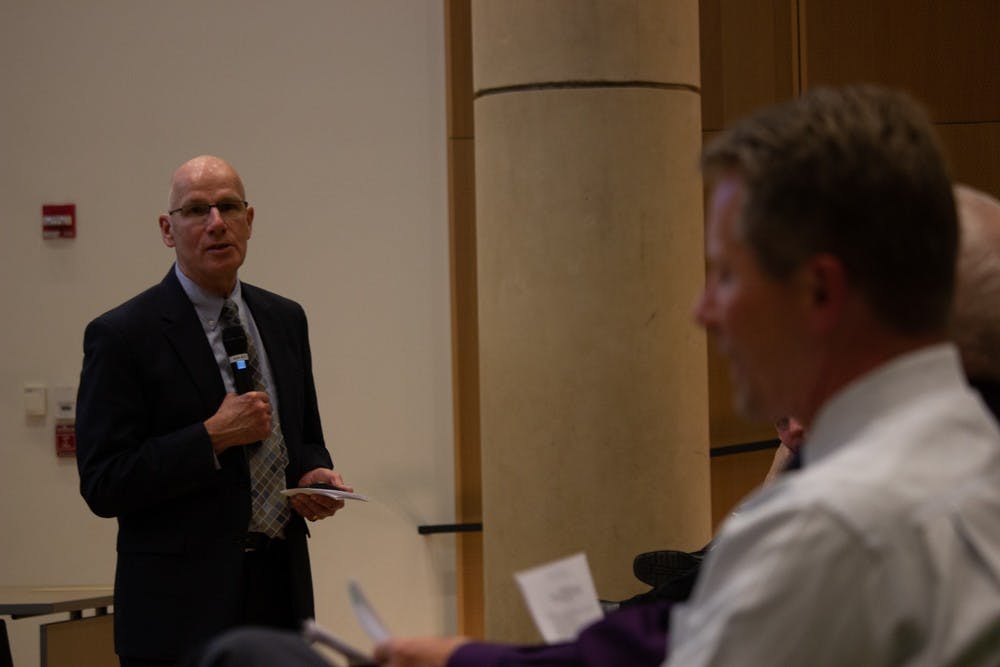The next topic of discussion was the report on a campus climate survey at UNC, initiated in response to concerns about the dominance of politically liberal ideas and the importance of free speech on campus, specifically in regard to conservative speakers and ideas.
Researchers said the study found little support for the idea that UNC socializes undergraduates into any specific political view.
"Students broadly agree that instructors encourage participation from across the political spectrum," Timothy Ryan, a political science professor, said of the study's results.
However, the study found that many students believe UNC's climate often does not promote "free expression and constructive dialogue across the political spectrum," according to Ryan's presentation. Some students expressed various concerns that prevented them from sharing their opinions in class — including professors' and peers' opinions of them, professors lowering their grade and peers posting about them on social media.
A substantial portion of students engaged in self-censorship at least once, according to Ryan's presentation.
Ryan said the study also found that while both liberal and conservative students encounter problems related to free speech, the difficulties are especially acute for students with right-wing views. But the study also found that UNC students from across the political spectrum are open to more constructive discussions with people who hold different perspectives.
Some members of the committee disagreed with the researchers' interpretations of the data.
"Maybe it's the case that UNC is more likely to push people one direction versus the other, and I say that without regard to my own political view," Beth Mayer-Davis said. "I just think you did the study, and there are the data and we have to be honest about what it seems to be."
Updates on Programs for Civic Virtue and Civil Discourse
The final topic of discussion at the meeting was about the implementation of The Program for Civic Virtue and Civil Discourse (PCVCD). In the past, members have expressed concerns about the political origins of the program and the leadership of the program's advisory board.
Chris Clemens, senior associate dean for research and innovation within the College of Arts & Sciences, discussed concerns and questions expressed by faculty members surrounding program leadership, funding and direction.
"The purpose of the program is to support a culture of open, frank, respective, productive (and) public debate at UNC," Clemens said. "Its ideological basis lies solely in a commitment to the power of the University as a place for socializing debate and democratic culture."
To get the day's news and headlines in your inbox each morning, sign up for our email newsletters.
Clemens said the program doesn't favor any political platform, but focuses only on facilitating discussion without regard to political origin.
Clemens also reassured the committee that no UNC staff, excluding two, one-year interns, have been hired for the program. He denied rumors that Robert George, chairperson of the program's advisory board, had been hired to a permanent position.
Cary Levine, a professor in the Department of Art & Art History, brought up Freedom of Information Act requests for emails between Clemens and George.
"There's emails from you (Clemens) to Robbie George saying 'I'm a Republican and I'd like to have a conservative center on campus,'" Levine said.
Clemens denies those allegations and said there was only one email that was taken out of context before the vision of the program existed.
@MaryMacPorter1
university@dailytarheel.com




